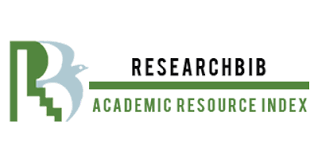PEDAGOGICAL IMPLICATIONS FOR IMPROVING STUDENTS' WRITING SKILLS IN FOREIGN LANGUAGES TEACHING
Keywords:
Explicit instruction, writing skills, pedagogical implications, scaffolding, differentiated instruction, writing platforms, online mind mapping, interactive online board, and collaborative writing.Abstract
This article analyzes several pedagogical implications for strengthening students' writing abilities in foreign language teaching. It specifically focuses on practical methods that can improve the writing process and foster successful communication. The study consolidates findings from both literacy and education studies and highlights four important areas for successful writing instruction: addressing the individual needs of each learner, developing a supportive learning environment, delivering clear instruction for each writing task, and incorporating technology. The aim is to give students the necessary skills and self-assurance to become skilled writers.
References
Caswell, R. (2004). Strategies for teaching writing. ASCD.
Cheung, Y. L. (2016). Teaching writing. English language teaching today: Linking theory and practice, 179-194.
Fernandes, A. S. (2012). Writing to learn writing skills–a case study. European Journal of Engineering Education, 37(2), 179-192.
Gunuç, S., & Babacan, N. (2018). Technology integration in English language teaching and learning. Positioning English for Specific Purposes in an English Language Teaching Context, 1.
O'Brien, T. (2004). Writing in a foreign language: Teaching and learning. Language teaching, 37(1), 1-28.
Williams, C., & Beam, S. (2019). Technology and writing: Review of research. Computers & Education, 128, 227-242.
Williams, J., & Cui, G. (2005). Teaching writing in second and foreign language classrooms. New York: McGraw-Hill.
Yunus, M. M., Nordin, N., Salehi, H., Embi, M. A., & Salehi, Z. (2013). The use of information and communication technology (ICT) in teaching ESL writing skills. English language teaching, 6(7), 1-8.







